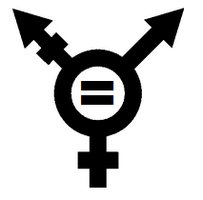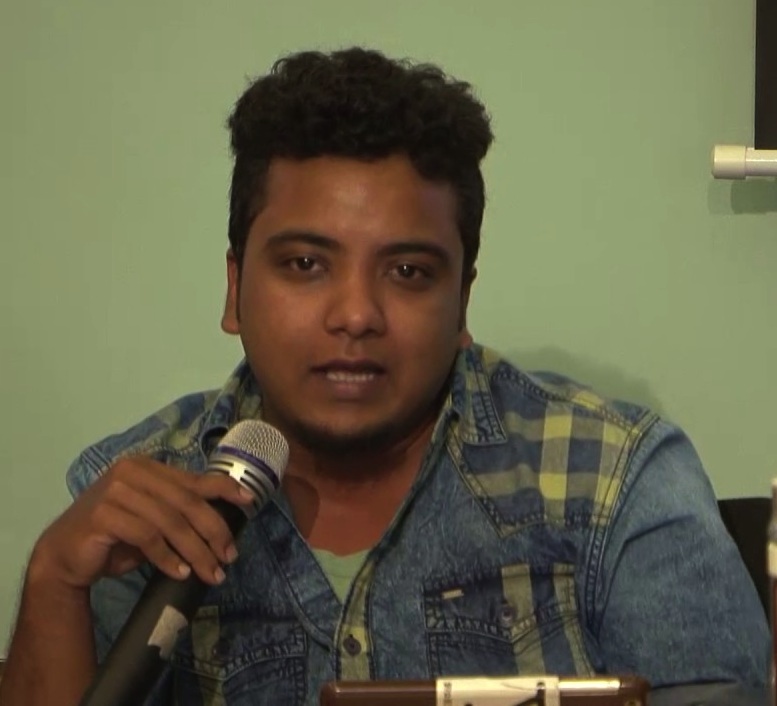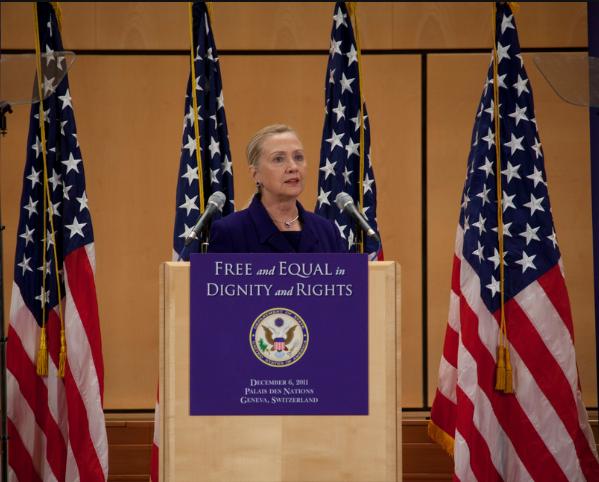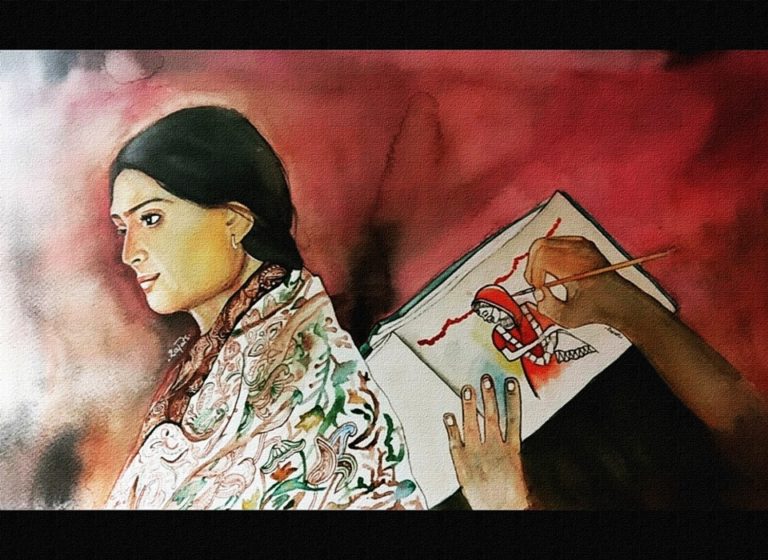Introductory workshops in LGBTIQA+ peer counselling
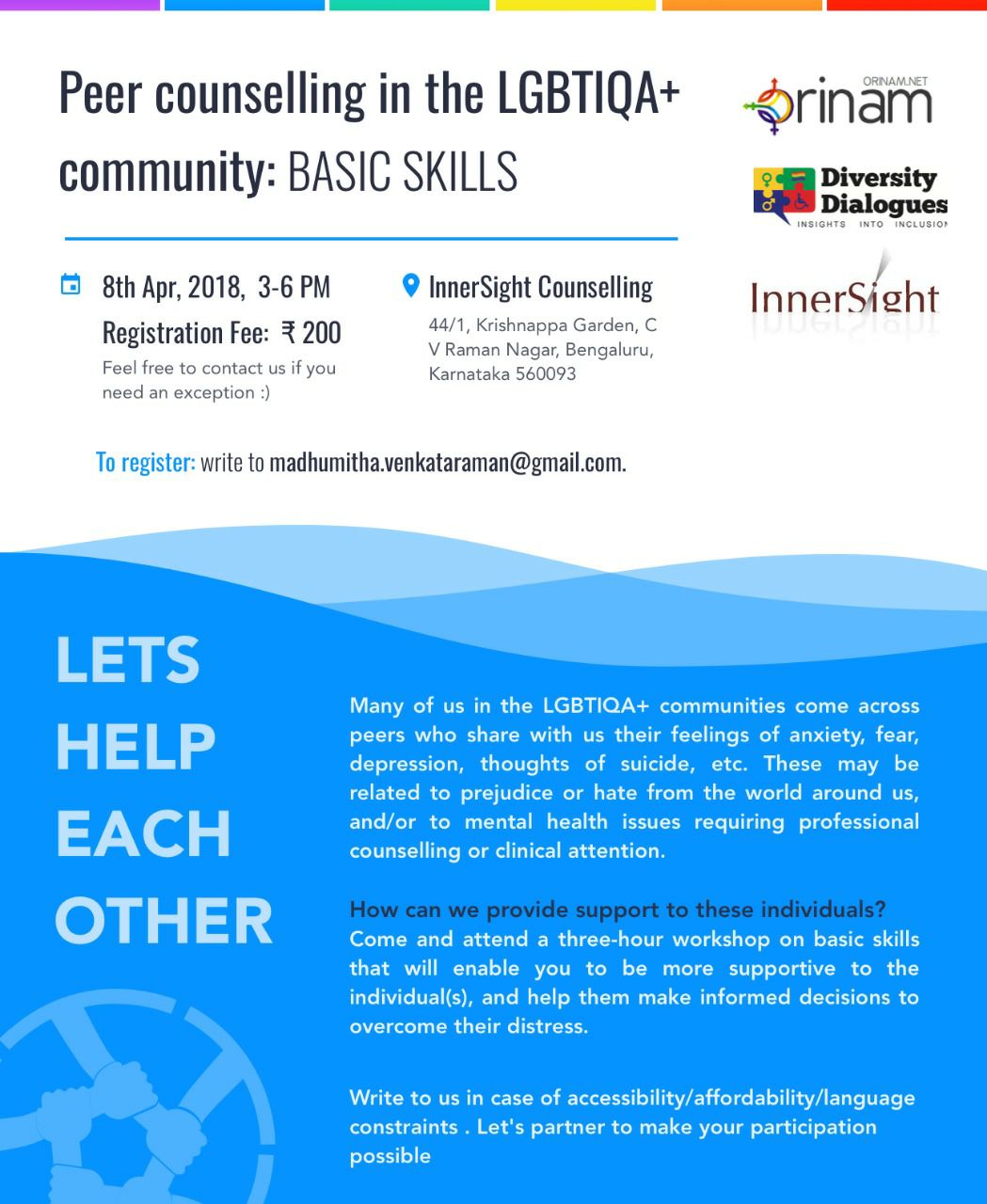
Differences from the norm in gender, sexuality and sex characteristics bring up questions that others may never face: What does one reveal about oneself to others? How much to disclose and to whom? How to look for relationships? Where does one meet others like oneself? How does one access health, education, employment? How does one seek support without feeling obligated?
Figuring out answers to such questions, living and working in a world that is often unfriendly and sometimes outright discriminatory, can mean a life lived in the shadows. For the Indian LGBTQIA+) community (Lesbian, Gay, Bisexual, Trans, Queer, Intersex, Asexual and other), in addition to the social and familial prejudices, the legal framework is oppressive, leaving little room to find safety and protection. Conflicts between one’s internal reality and the way the world is, can be a source of major distress [1]. We are aware of many instances of suicide and suicide attempts among community members that were prompted by such distress.
While support groups and queer-friendly counsellors do exist in India, particularly in the metros, there is a need for more support including channels of trained peer supporters in the community.
Peer Support may be defined as the help and support that people with lived experience of a minority group are able to give to one another [2]. It may be social, emotional or practical support but importantly this support is mutually offered and reciprocal, allowing peers to benefit from the support whether they are giving or receiving it. It is built on the premise of empathy and personal experience.
Peer support and professional mental health support can complement each other through two-way referrals [3]. Increasingly, LGBTIQA+ community groups are receiving referrals from psychiatrists and counseling psychologists who ask their clients to reach out to such groups to obtain peer support and reduce their sense of isolation.
With the goal of building a strong peer support system in mind, a group of organisations and collectives based in Bangalore and Chennai, including professional counsellors, peer supporters and diversity/inclusion professionals, have taken the following
steps:
1. Initiated 3-4 hour workshops for LGBTIQA+ community members and allies to orient them on peer counselling principles: The workshops have been conducted in Bangalore (January 7, 2018) and Chennai (February 25, 2018) so far. Participation is capped at 20 per workshop, and is open to those with prior exposure to providing peer support, as well as those who would like to engage in the future. Workshops are multilingual and held in accessible venues. At present they are funded by community donations and a participant fee (sliding scale, including waiver, available).
The next workshop will be held on Sunday April 8, 2018, in Bangalore.
|
2. Building a referral network of peer support individuals: A WhatsAppTM group has been created with all the peer supporters who attend the workshop and agree to be part of the network, to ensure that there is an ongoing effort to reach out to people who could benefit from support. The group also intends to function as a safe space for people to exchange best practices around peer support and build their capability as peer supporters.
Organising entities include InnerSight, Diversity Dialogues, and Orinam. The Chennai workshop was co-organised with Nirangal and focused on the role of peer counselling within the larger crisis support framework. Reading materials created to help build understanding around peer support may be downloaded from https://orinam.net/wp-content/uploads/2018/03/Feb25_2018_LGBTIQA- Peer-
CounsellingHandouts.pdf
Note: These community-initiated workshops are not the first of their kind. To our knowledge, previous workshops of this nature have been organised in Chennai (2008, 2009), Kochi (2016) and Imphal (2017). The present set of workshops has been motivated by an increase in individuals seeking support, mobility of individuals especially among southern states – that calls for a referral network of peer counsellors (in addition to those involved in crisis intervention), and several reported instances of suicide and suicide attempts in the past year.
References
[1] Natarajan, Mahesh. 2017. Coming out vs Fitting in: Mental health and the LGBT person in India. White Swan Foundation. Online athttp://www.whiteswanfoundation.org/article/coming-out- vs-fitting- in-mental- health-and-the-lgbt-person-in-india/ [2] Mental Health Foundation. year unknown. Peer Support. Online at https://www.mentalhealth.org.uk/a-to-z/p/peer-support [3] Pattojoshi, A., BB Pattanayak, and L. Ramakrishnan. 2017. LGBT Mental Health: The Way Forward.The Odisha Journal of Psychiatry 2017 issue: pp. 2-8. Online at http://odishajp.com/wp-content/uploads/2017/12/JOURNAL-BOOK-2ND-EDETION-NOVEMBER-2017-16-Version.pdf


